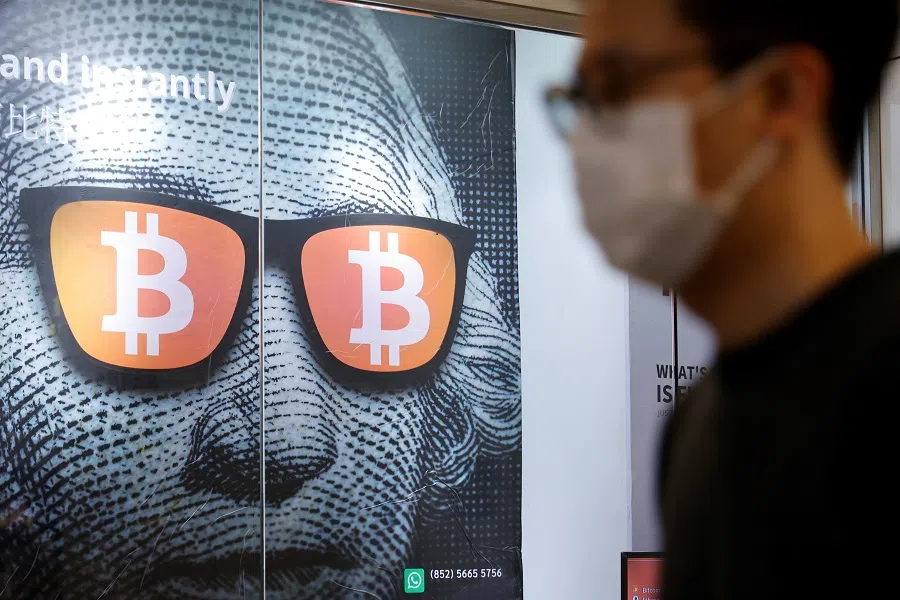Rising cryptocurrency appeal in China despite ban and escalating restrictions
In times of economic uncertainty, the allure of bitcoin and other cryptocurrencies is stronger, despite China's ban on cryptocurrency trading and mining since 2021. In some cases, it might even be a means for wealth transfer. NUS academic Ben Charoenwong discusses the issue.

In May of 2021, China shocked the cryptocurrency world with its blanket ban on all cryptocurrency transactions and mining. This move caused Bitcoin to crash by over 30% in one day. The ban involved over ten agencies, from the central bank to various securities and foreign exchange regulators.
At the time, the official reasons, according to the People's Bank of China, were "to safeguard people's properties and maintain economic, financial and social order". However, three years later, Chinese retail investors appear to be continuing to find loopholes in the prohibition.
... the decentralised nature of Bitcoin makes it extremely challenging to police the transactions and allow anyone to participate in the network.
The struggling Chinese market and rising marginal benefits of cryptocurrency
The recent surge in illegal cryptocurrency activity comes amidst rising economic uncertainty, with the Chinese stock market experiencing a downturn and traditional investment options losing their appeal. Following a devastating three-year cumulative loss of over 40% in the Chinese equity markets, retail traders appear more inclined to take the risk of non-compliance in hopes of better returns.
The outlook also does not look particularly promising; local governments are under pressure to raise offshore financing through dim sum bonds (bonds issued outside of China and denominated in Chinese renminbi), banks are pressured to raise costly external financing through the issuance of total loss-absorbing capacity bonds to comply with international banking standards, for which they have been deficient, and foreign direct investments hit record low despite relaxations in inward-bound capital controls. The recent sluggish economic reports may also sour already shaky sentiments.
In tumultuous times, the allure of Bitcoin and other cryptocurrencies is stronger. Similar to gold, Bitcoin can serve as a hedge against broader economic uncertainty for Chinese investors. In addition, the decentralised nature of Bitcoin makes it extremely challenging to police the transactions and allow anyone to participate in the network.
Despite the risk of regulatory crackdowns, for retail traders, the potential benefits from (1) having an alternative source of investments, and (2) being able to potentially move funds out of the country and by-pass capital controls have driven many to consider it a worthwhile gamble.
In other words, flaunting the rules by investing in Bitcoin may not only hold the promise of higher returns but also open up the possibility of bypassing capital controls. After all, if using cryptocurrencies is already illegal, why not use it for wealth transfer as well?
To this end, Chinese crypto enthusiasts have turned to Virtual Private Networks (VPNs) and offshore crypto exchanges to circumvent the ban. These digital backdoors offer a lifeline to crypto traders, enabling them to operate outside the scrutiny of Chinese regulators. Furthermore, peer-to-peer transactions and over-the-counter desks have gained popularity and are effective laundromats for crypto transactions.
Anyone can participate in the system pseudonymously, making the enforcement of the ban difficult.

Beyond cryptocurrency, capital seeking safer or more promising homes have also reverberated to other Asian markets, with onshore Chinese-listed equities funds tracking Japanese or US markets trading at all-time premiums.
More crackdowns, more benefits
As the Chinese government tightens restrictions on on-shore capital outflows, the marginal benefit of using cryptocurrencies as a means for cross-border transactions increases, making them more attractive for investors. Consequently, the Chinese government is likely to respond with further restrictions, by continuing the whack-a-mole strategy to step external flows. As this unfolds, the marginal benefit of using cryptocurrency is even higher.
To disincentivise the illegal use of cryptocurrencies, policymakers may resort to raising the costs of non-compliance through measures such as stricter penalties or enhanced monitoring. However, this approach is a delicate balancing act. It is challenging for governments to combat fundamental incentives, since the government needs to give due consideration to the well-being of its citizens.
... the resilience and creativity of Chinese retail investors, showcases the enduring appeal of cryptocurrencies.
The adaptability of retail investors, coupled with the global and decentralised nature of cryptocurrencies, poses a formidable challenge to regulatory authorities. In a sense, the current use of cryptocurrency aligns with the vision of its creators which is to enable capital movement beyond the reach of the government. Anyone can participate in the system pseudonymously, making the enforcement of the ban difficult.
Yet the government cannot stand idle in facing off this new volatile asset class. A large crash in crypto would exacerbate investor sentiment - potentially leading to some unrest as investors think they are literally out of options to recover their losses. As the tug of war between regulators and market forces persists, the resilience and creativity of Chinese retail investors, showcases the enduring appeal of cryptocurrencies.



![[Video] George Yeo: America’s deep pain — and why China won’t colonise](https://cassette.sphdigital.com.sg/image/thinkchina/15083e45d96c12390bdea6af2daf19fd9fcd875aa44a0f92796f34e3dad561cc)
![[Big read] When the Arctic opens, what happens to Singapore?](https://cassette.sphdigital.com.sg/image/thinkchina/da65edebca34645c711c55e83e9877109b3c53847ebb1305573974651df1d13a)
